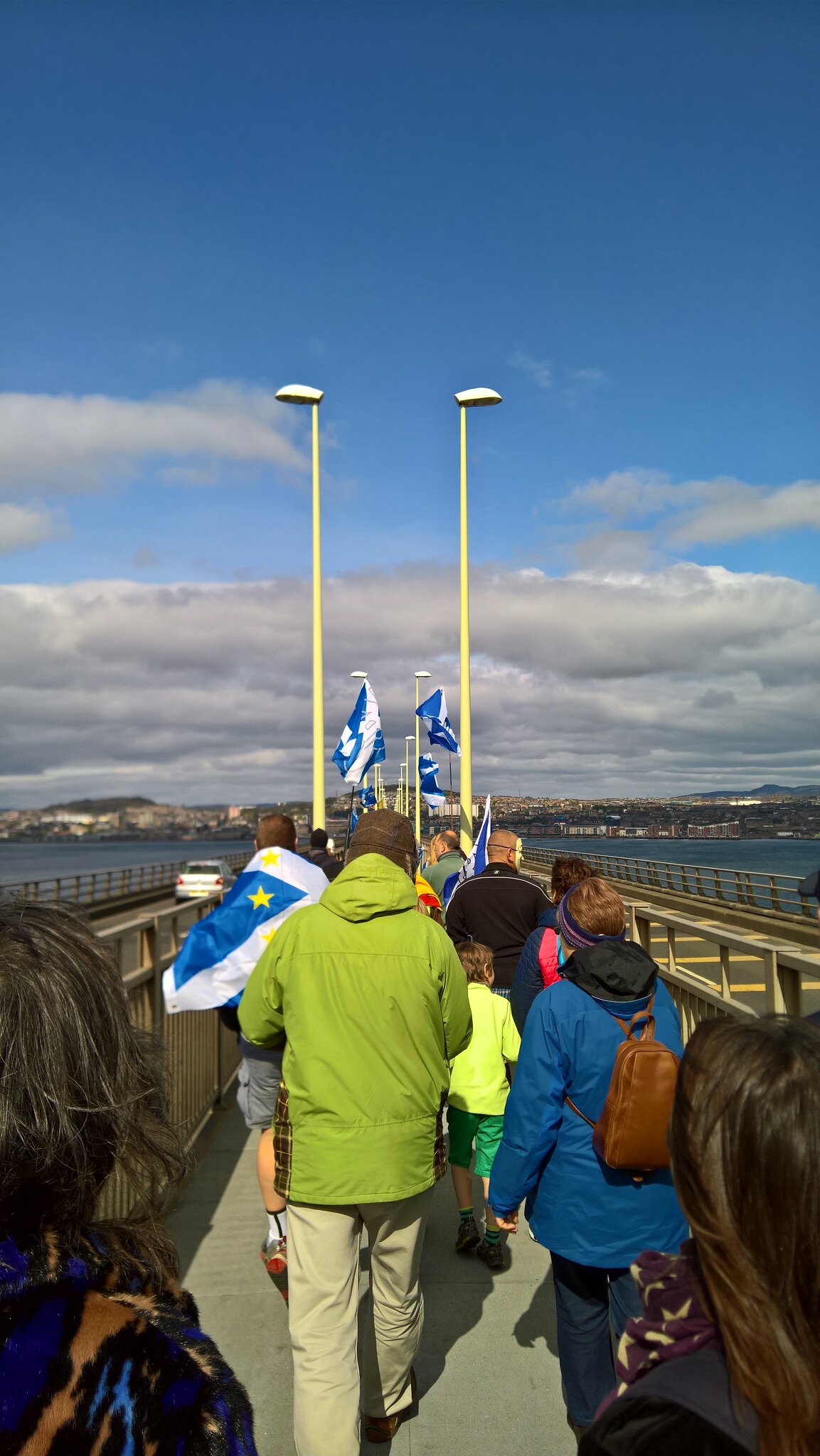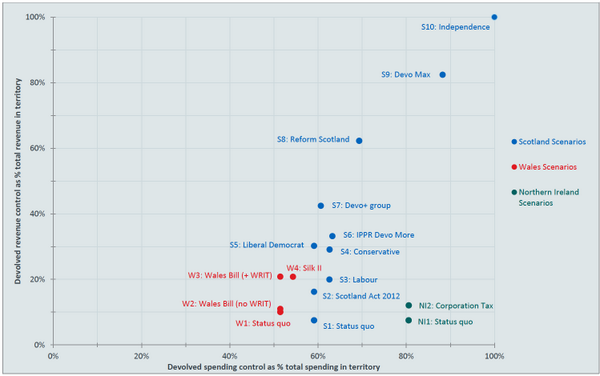A March for Independence (in April)
Apr. 27th, 2017 11:16 pm On Saturday, YES North East Fife organised a march across the Tay Bridge from Fife to Dundee followed by a rally in the City Square. It was well-attended for a local event – by hundreds, according to the precision journalism of the Courier. The weather was fine, and many motorists seemed to approve of the display, judging by the proportion of them sounding supportive horns – though in the interests of balanced reporting, I must admit that there was one car that went by shouting something incoherent and waving the Vs.
On Saturday, YES North East Fife organised a march across the Tay Bridge from Fife to Dundee followed by a rally in the City Square. It was well-attended for a local event – by hundreds, according to the precision journalism of the Courier. The weather was fine, and many motorists seemed to approve of the display, judging by the proportion of them sounding supportive horns – though in the interests of balanced reporting, I must admit that there was one car that went by shouting something incoherent and waving the Vs.
Once arrived in Dundee there were a few stalls, including one selling books by the speakers that had them to sell, a Scottish Green Party stall (with Maggie Chapman in attendance), and a stall for English Scots for Yes. English Scots for Yes seemed to emerge quite late in the last independence campaign, but I think what they’re doing is important. Although many English-born residents of Scotland voted Yes – and there are plenty English people in the SNP – they are out-numbered by their compatriots who voted No. I don’t think English Scots have anything to fear – if I did, I would be siding with them – but it’s clear that as supporters of independence we haven’t done a good enough job of convincing them that there is no beef between us. English Scots for Yes may help to change that impression.
Change of that sort is sorely needed when there’s nonsense going on like the news story that finally made it to the top of the BBC's Scotland page today of suspect chemical packages being sent to at least three Scottish locations. It’s been an emerging story since Tuesday, but has taken two days to get any profile. Stuff like this is happening because of people whipping up resentment against independence supporters – unionists so “obsessed” with their fear of a democratically driven readjustment at a national level that it’s all they can talk about in their council election leaflets, and a poisonous press. No-one could claim that independence supporters are all saints, but I honestly don’t think they’re the dangerous side in this.
There were talks from a variety of speakers, not all of which I was able to stay and attend, but I caught and enjoyed listening to Robin McAlpine, Billy Kay, Paul Kavanagh (The Wee Ginger Dug) and Lesley Riddoch. Three of the talks can be watched below, and if you’ve got the time I recommend doing that. I was a bit disappointed Maggie Chapman wasn’t among those speaking, since she was present, but I presume she had her reasons.







